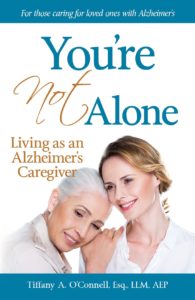May 2021
 |
 |
|
|
|
|
Should You Be Concerned About Changes to the Step-up in Basis?
Whenever a new president takes office, "discussions" about taxes are sure to follow. During his campaign, President Biden proposed a number of changes to the tax code that would affect wealthy Americans. One proposal, however, could impact people of more modest means: modifications to, or the elimination of, the basis step-up rule.
|
|
|
What do we mean by step-up in basis? Basis, in this case, refers to the value of an inherited asset for tax purposes. One could use the value of the asset when it was originally purchased, or one could use the value of the asset when the original owner passed away and the asset was bequeathed to a beneficiary. The latter value could be considerably higher than the original purchase price.
A step-up in basis uses the higher value, the "stepped-up" value.
Assessing the value of an inherited asset in this way translates into lower capital gains tax liability. Let's look at a hypothetical example.
Say an investor purchased 1000 shares of stock at five dollars a share, meaning the investment was originally worth $5,000. Over time, the value of the stock increased to 25 dollars per share and the original investment was now worth $25,000, a gain of $20,000. When the investor passed away, she left that stock to her son.
|
|
|
|
|
Without a step-up in basis, the son could be responsible for paying capital gains tax on that $20,000 increase in value. However, with a step-up in basis, any capital gains tax would be based on the stepped-up value of $25,000. If the son sold the stock at the same price he inherited it, he would not have to pay capital gains tax on the $20,000 increase in the value.
The step-up in basis also applies to other appreciated assets, such as a house. Let's say a property that originally cost $200,000 was worth $400,000 when the original purchaser passed away. If the house was left to the purchaser's daughter, the step-up in basis would mean the daughter doesn't have to pay capital gains tax on the $200,000 increase in value (from $200,000 to $400,000).
Instead, the value of the property would be "stepped up" to $400,000 for tax purposes.
You can see how the step-up in basis can dramatically lower one's capital gains tax liability. Eliminating it could have serious financial consequences for the beneficiaries of appreciated assets.
It is important to note that the elimination of the step-up in basis, or even a modification of it, is by no means a certainty. According to the Tax Policy Center, efforts to eliminate the step-up in basis were made in 1976, 2001, and 2015. And while several senators have announced a bill designed to put an end to the step-up in basis, the passage of such a bill could prove difficult in an evenly divided senate. President Biden's latest proposal would eliminate the step-up in basis to gains over $1 million, with protections for farms and family-owned businesses given to heirs.
|
|
|
For now, it's all talk. Fortunately, with proper planning, it is possible to protect your assets, inherited or otherwise, against changes to the tax code. |
|
|
|
Myths and Misconceptions About Probate |
 |
|
|
Simply put, probate is a legal process for settling debts and distributing assets after a person passes away. There are many myths and misconceptions about the probate process, the most common of which we will dispel here. |
|
|
|
If the decedent had a will, his or her estate won't have to go through probate
While a will allows you to choose the executor of your estate, name a guardian for your minor children, and convey your wishes about who receives your assets after you pass away, it does not allow your estate to avoid probate. As a matter of fact, part of the probate process involves determining the validity of a will.
The only way to avoid probate is to create a trust
Trusts are powerful estate planning tools capable of helping you accomplish a wide range of planning goals, including probate avoidance. However, having a trust is not the only way your estate can avoid probate. Assets held in joint tenancy with rights of survivorship, payable on death accounts, and multiple party accounts with financial institutions can also avoid probate.
It takes years to complete the probate process
We've all heard stories about celebrities and wealthy families fighting over estate assets for years on end. And if you are expecting an inheritance, it can seem like years before probate is completed and you actually receive your inheritance. The truth is that while probate can be frustrating, time-consuming, and fraught with delays, the vast majority of estates are settled within a year and oftentimes require considerably less time than that. Most states also allow for what is known as a summary probate when an estate is small and other conditions are met. Summary probates can be completed in a few months. Factors that influence the amount of time required to probate an estate include the number of beneficiaries, the size and complexity of the estate, disagreements between beneficiaries, will contests, the lack of a will, and situations where the decedent had a large number of creditors or debts.
It's best to name the oldest child as executor of the estate
An executor is the individual who administers an estate during probate. You can name your executor in your will. (If there is no will, the court has the authority to select a "personal representative" to administer the estate.) Although many people want their oldest child to serve as executor, doing so is not a requirement. In fact, it may not even be the wisest choice. Given the importance of the executor's role and the numerous responsibilities involved in the probate process, you should put a great deal of thought into choosing your executor.
The cost of probate is so high that there will be little left in the estate for beneficiaries
While probate can be expensive, it typically costs less you might think. The cost varies greatly based on where the estate is probated, but it generally falls within a range of three to seven percent of the estate's value. Many of the factors that influence how long probate takes also impact its cost, particularly the size and complexity of the estate and whether disputes arise between beneficiaries.
We can create a plan to help ensure your estate will not have to go through probate. If you are responsible for probating an estate, or think you will be soon, we can guide you through every stage of the process.
|
|
|
Upcoming Events |
 |
Wills & Trusts 101
Friday, June 11 12:00 PM - 1:00 PM
Protecting Your Kids with Estate Planning
Wednesday, June 16 5:00 PM - 6:00 PM
Register today to reserve your spot for this webinar.
Additionally, registration for this event is critical so that we can contact you if it is prudent to cancel this session or if we need to change how we are able to offer this to you.
|
| Register Now |
|
|
A Personal Note From Tiffany |
 |
|
|
We have two robin’s nests just outside our house—one in front and the other in the back. Besides the robin in front taking her sweet time (the robin babies in front have yet to hatch) and therefore keeping us from using our front door, it has been such a pleasure watching them. The patience a mother robin has to sit for hours in its nest is staggering.
There are three active robin babies in the nest in the back – We think they will leave the nest any day. They are absolutely adorable. I can’t wait to see them fly.
Watching the robins over the last few weeks has been a good reminder (at least for me) to slow down and enjoy the moment.
As always, thank you for taking the time to read and reflect.
Sending you all a remote hug,
|
|
|
IT’S ALL ABOUT THE STUDENTS THIS MONTH
|
Sophia Bucal - Sophia just finished her
sophomore year of college!
|
|
|
Sam Lettieri - Sam just finished her junior
year of college!
|
|
|
Nicole Woodward - Nicole is graduating from law school! She’ll be away for the next few months studying for the bar exam.
|
|
|
Chloe Boudreau - Chloe just finished her
second year of law school!
|
|
|
Adam Berk - Adam just finished his second
year of law school!
|
|
|
We are SO lucky to have these amazing students (and graduate) working with us. Congrats, team!
|
Order Our Complimentary Books
|
|
|
 |
|
You're Not Alone — Living with Alzheimer's Disease
Order Here |
|
 |
|
You're Not Alone — Living as an Alzheimer's Caregiver
Order Here |
|
|
Or Call Us at 508-202-1818
|
|
|
 |
|
|